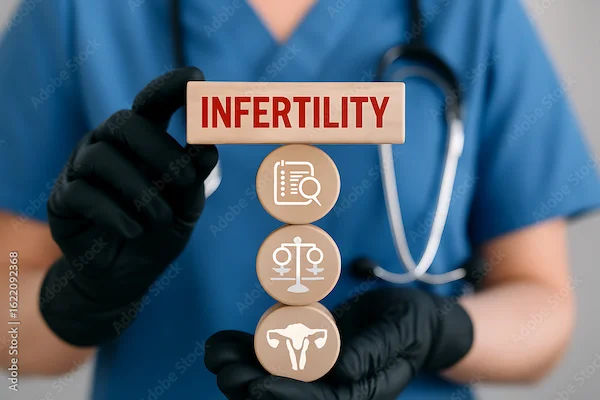Keto Diet Risks for PCOS Explained
Learn about keto diet risks for PCOS, potential side effects, and tips to safely manage this diet while supporting hormonal health.


Introduction
Polycystic Ovary Syndrome (PCOS) is a common hormonal disorder affecting many women, often leading to irregular periods, weight gain, and insulin resistance. Many women with PCOS turn to the ketogenic (keto) diet—a high-fat, low-carb eating plan—to manage symptoms and lose weight. While the keto diet may offer some benefits, it also comes with potential risks for women with PCOS.
What Is the Keto Diet?
The keto diet is a low-carbohydrate, high-fat eating plan designed to put your body into ketosis—a state where it burns fat for energy instead of glucose (sugar). A typical keto diet includes:
High-fat foods: Avocados, nuts, butter, oils, fatty fish
Moderate protein: Eggs, chicken, fish
Very low carbs: Less than 50 grams per day (avoiding bread, rice, fruits, and sugary foods)
How Does the Keto Diet Affect PCOS?
Many women with PCOS struggle with insulin resistance, meaning their bodies don’t respond well to insulin, leading to high blood sugar levels. Since the keto diet reduces carb intake, it may help:
Lower insulin resistance (by reducing sugar intake)
Promote weight loss (helping with hormone balance)
Reduce inflammation (common in PCOS)
However, the keto diet is not a one-size-fits-all solution, and it may have serious downsides for women with PCOS.
Consult Top Specialists for Personalised Tips
Potential Risks of Keto for PCOS
1. Hormonal Imbalance & Irregular Periods
PCOS already disrupts hormones like estrogen and progesterone. The keto diet can further stress the body, leading to:
- Worsened irregular periods (due to extreme calorie restriction)
- Increased cortisol (stress hormone), which may worsen PCOS symptoms
2. Nutrient Deficiencies
Cutting out carbs means missing out on essential nutrients from:
- Fruits & whole grains (fiber, vitamins, antioxidants)
- Dairy & legumes (calcium, magnesium, B vitamins)
This can lead to deficiencies, affecting energy levels and overall health.
3. Gut Health Problems
A healthy gut is crucial for hormone balance. The keto diet may:
- Reduce fiber intake, leading to constipation and bloating
- Disrupt gut bacteria, worsening PCOS-related inflammation
4. Risk of Disordered Eating
PCOS often causes weight struggles, and extreme diets like keto can lead to:
- Binge-eating tendencies (due to severe carb restriction)
- An unhealthy relationship with food
5. Long-Term Sustainability Issues
Many women find keto hard to maintain because:
- It’s restrictive and socially challenging
- Sudden weight regain can happen when reintroducing carbs
Healthier Alternatives to Keto for PCOS
Instead of extreme diets, consider these balanced, sustainable approaches:
1. A Low-Glycemic Diet
Focus on foods that slowly release sugar into the bloodstream:
- Whole grains (oats, quinoa, brown rice)
- Fiber-rich veggies (broccoli, spinach, sweet potatoes)
- Lean proteins (chicken, fish, tofu)
- Healthy fats (nuts, olive oil, avocados)
2. Regular Exercise
- Strength training helps improve insulin sensitivity.
- Yoga & walking reduce stress, which is crucial for PCOS.
3. Stress Management
High stress worsens PCOS symptoms. Try:
- Meditation & deep breathing
- Adequate sleep (7-9 hours per night)
4. Supplements (If Needed)
Some supplements may help, but always consult a doctor first:
- Inositol (improves insulin sensitivity)
- Magnesium (reduces inflammation)
- Omega-3 fatty acids (supports hormone balance)
When to See a Doctor?
If you have PCOS and are considering the keto diet, consult a doctor or dietitian first. They can help you:
Personalise a diet plan that suits your body
Monitor hormone levels to prevent imbalances
Avoid potential risks of extreme diets
At Apollo 24|7, you can book a consultation with a PCOS specialist or nutritionist to create a safe, effective plan for managing your symptoms.
Conclusion
While the keto diet may offer short-term weight loss benefits for PCOS, its long-term risks—hormonal imbalances, nutrient deficiencies, and gut issues—make it a questionable choice. Instead, focus on a balanced, low-glycemic diet, regular exercise, and stress management for sustainable PCOS management.
If you’re struggling with PCOS symptoms, don’t hesitate to seek professional guidance. Your health matters, and small, consistent changes can make a big difference!
Consult Top Specialists
Consult Top Specialists for Personalised Tips

Dr. Mona Yadav
Obstetrician and Gynaecologist
19 Years • MBBS, MD (Obstetrics & Gynaecology)
Dombivli
Nulife multispeciality, Dombivli

Dr. Parul Sharma
Obstetrician and Gynaecologist
8 Years • MBBS, MS (Obstetrics & Gynaecology)
New Delhi
THE DOCTORS NESST, New Delhi
Dr. K Anusha
Obstetrician and Gynaecologist
4 Years • MBBS, DGO
Yemmiganur
SRINIVASAA HOSPITAL, Yemmiganur

Dr. Asha Rani Singh
Obstetrician and Gynaecologist
24 Years • MBBS DGO
Delhi
Dr Asha Rani Singh Clinic, Delhi

Dr. Shyamala Devi
Obstetrician and Gynaecologist
38 Years • MBBS, MS Obstetrics & Gynaecology
Vijayawada
Sri Shivshakti Nilayam, Vijayawada
Consult Top Specialists

Dr. Mona Yadav
Obstetrician and Gynaecologist
19 Years • MBBS, MD (Obstetrics & Gynaecology)
Dombivli
Nulife multispeciality, Dombivli

Dr. Parul Sharma
Obstetrician and Gynaecologist
8 Years • MBBS, MS (Obstetrics & Gynaecology)
New Delhi
THE DOCTORS NESST, New Delhi
Dr. K Anusha
Obstetrician and Gynaecologist
4 Years • MBBS, DGO
Yemmiganur
SRINIVASAA HOSPITAL, Yemmiganur

Dr. Asha Rani Singh
Obstetrician and Gynaecologist
24 Years • MBBS DGO
Delhi
Dr Asha Rani Singh Clinic, Delhi

Dr. Shyamala Devi
Obstetrician and Gynaecologist
38 Years • MBBS, MS Obstetrics & Gynaecology
Vijayawada
Sri Shivshakti Nilayam, Vijayawada
.webp)



.webp)